
November 13, 2025: Theatre Yesterday and Today, by Ron Fassler.
In 1984, I attended a performance of what marked the occasion of only the third play that Steppenwolf Theatre had brought to New York from their native Chicago; a revival of Lanford Wilson’s 1965 ensemble drama Balm in Gilead. Already hailed for their riveting, kinetic style of theatre, the company’s formation involved an extraordinary group of young men and women who, over time, would go on to exemplary careers as actors, writers and directors. Appearing onstage in Gilead, under the direction of company member John Malkovich, were Steppenwolf’s co-founders, Terry Kinney, Jeff Perry, and Gary Sinise. The whole glorious production was more than a bit overwhelming, thus making it difficult forty-one years later to remember specific moments. But one of its actors, making their New York stage debut, gave a performance so crushing I will never forget it. As a tattered prostitute, Laurie Metcalf’s monologue midway through the play was the definition of a tour de force. Who was this woman and how did she conjure such supernatural qualities to make it possible to do what she was doing? Capping off the monologue was the brilliance of using Bruce Springsteen’s “Jungleland” to slowly come up and under her jumble of words, thumping through the theatre’s sound system, producing the unforgettable image of Metcalf’s continuing while the lights dimmed and the music drowned her out.
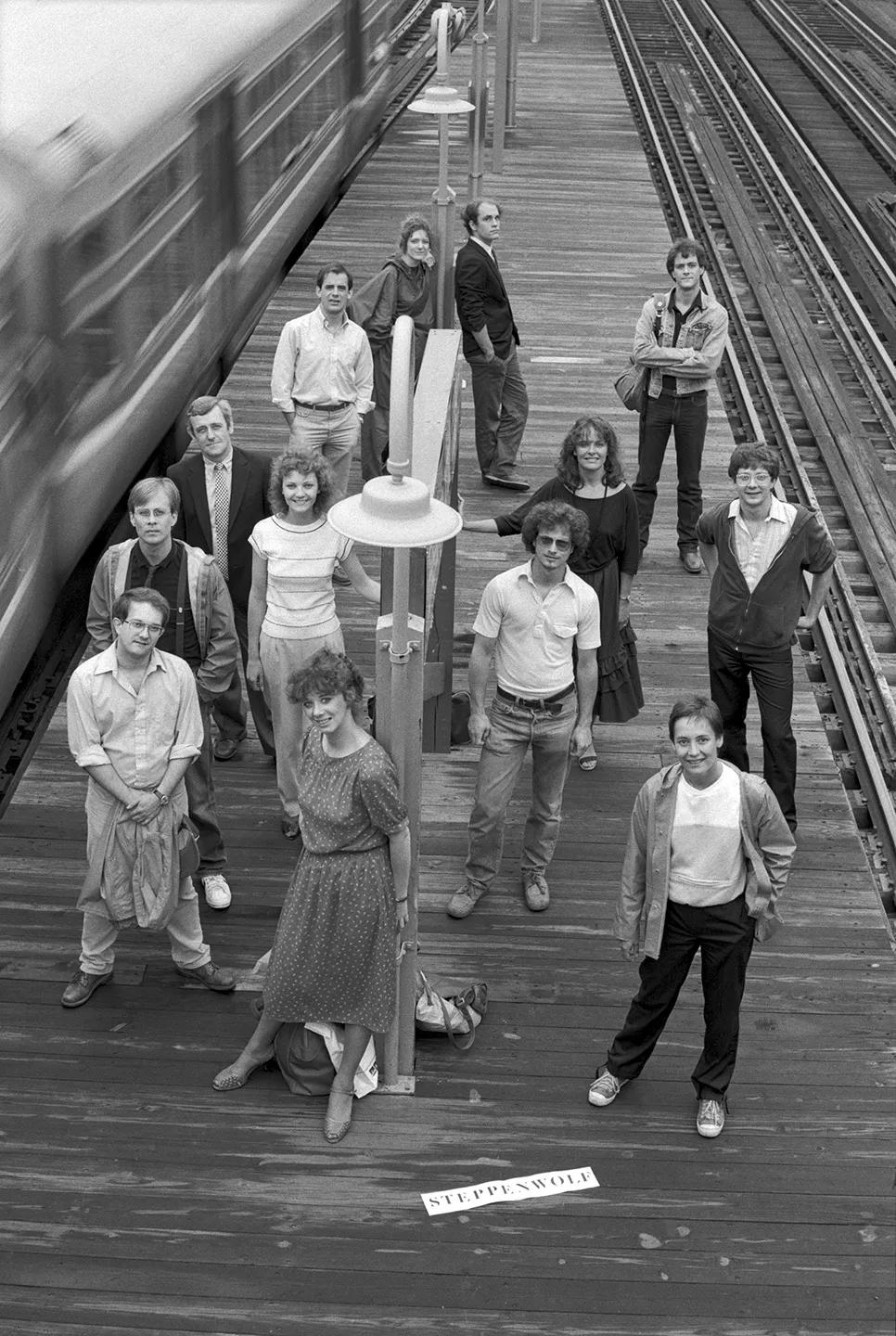
This was only the first of numerous performances over the years that have left me slack jawed at the astonishing ability of Metcalf to get to the marrow of a character. Either conveying brittle humor or anguished pain with a mere shrug, or a glance, or a line reading that can cut through steel, Laurie Metcalf makes you aware that you’re in the presence of one of the great stage actors of our time. And lucky us, she’s back on Broadway in Samuel D. Hunter’s exquisite Little Bear Ridge Road which opened last week at the Booth Theatre, directed with tender finesse by Joe Mantello.
The duo shares a shorthand having worked on six prior shows together, two of which won Metcalf back-to-back Tony Awards (Lucas Hnath’s A Doll’s House, Part 2 and Edward Albee’s Three Tall Women). The search for lucky #7 on which to collaborate proved tough, though. What they were looking for, in Mantello’s words, was “something dangerous that would exploit what Laurie does best.” At Steppenwolf’s urging, they commissioned Hunter to conceive a play specifically for Metcalf, which Little Bear Ridge Road does in spades—and it was written in three months. “It’s like having a custom-made suit. It just fits better,” said Mantello. It’s hard to believe, but this is the first time in her near fifty-year career that someone has written Metcalf a role.
In a recent interview discussing Little Bear Ridge Road, Mantello and Metcalf addressed their unique dynamic:
Mantello: “There are lines in this that only Laurie … they have the Metcalf spin on it. Like on the page you wouldn’t ordinarily think that’s how one might say that line or interpret that line. So, she always comes at it from a very interesting, idiosyncratic angle.
Metcalf: I like to spin a line. I think sometimes that comes down to really just like throwing away the punctuation and it makes you look at it in a different way. But it’s always fun to find one or two of those that are unexpected.
Whatever her technique, it’s a marvel that this actress can produce explosive laughter with lines written on paper that are not at all funny. In Metcalf’s readings, “I’m going to put that coffee on,” and “I’m going to check that buzz saw,” bring the house down. You figure it out. It’s beyond me.
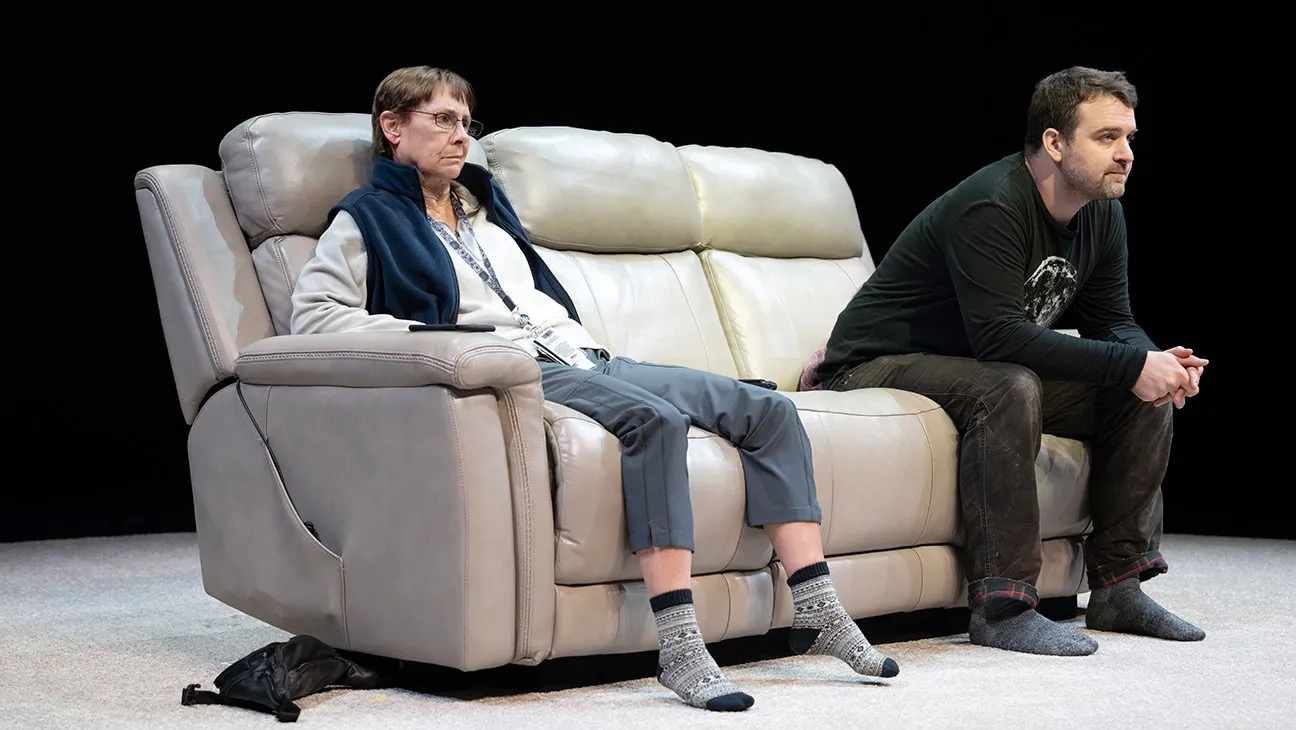
The role Hunter has created for Metcalf is Sarah, a practicing nurse living a solitary life and entirely at one with her independence. She lives on the outskirts of the small town of her birth, Troy, Idaho, also home territory for Hunter who sets nearly all his works in Idaho. The play opens shortly after Sarah’s brother’s death, the result of slowly killing himself by years of drug addiction. Her nephew Ethan (the mighty Micah Stock) intrudes on her privacy by arriving from Seattle after a long time away, hoping he can sell his estranged father’s home—or whatever’s left of it. Broke and living in his car, Ethan is a sad case; a mother who abandoned him, a father who wasted away in front of his eyes, and bullied for being a gay teenager, all leaving permanent scars on his psyche. He winds up staying with his aunt for more than a little while and when it’s revealed why they have also been estranged, the complicated story behind it is a devastating one. This is small-scale storytelling in which not a great deal happens (but everything happens) recalling many of the characters Chekhov brought to life with his empathetic writing; yearners who make often-unnecessary choices that cause them to suffocate rather than breathe free. An introduction of a boyfriend Ethan finds via Grindr (“Is this a date?”), played with a warmth and generosity of spirit by John Drea, add to the drama in tandem with Hunter’s authentically timed comedy. The appearance of a character late in the play, acted with a wondrous simplicity by Meighan Gerachis, draws us in with final, haunting moments that beat with an aching truth.
Not only has Joe Mantello forged a perfect unity of this quartet of actors, but his design team has surely eclipsed whatever playwright Hunter imagined while writing his play. Though he came up with the concept of it being staged around “a couch in a void,” turning Hunter’s vision into a theatrical reality has fallen to Scott Pask, who elevates a bare scenic design into high art. Set against a rough-hewn back wall, lit imaginatively and effectively by Heather Gilbert, the couch almost becomes its own character. As Micah Stock elegantly states in an interview with WNYC’s Alison Stewart, “The core tension of the play is like these two tiny lives in the vastness of the universe. When that back wall comes up, it's just like the universe shows up . . . These are two deeply unsentimental characters . . . There's no tearful forgiving and hugs and I loves yous. I think they both save one another in very small ways. I think like if a full-on redemption is a mile, Ethan goes 20 feet. Do you know what I mean? Which, to me, is real life. It's inching forward. It's not leaps and bounds.”

Inch by inch, Little Bear Ridge Road takes you on a journey that, by its finish, leaves you changed. Spending time among Hunter’s characters, guided by Joe Mantello’s handling of four actors of intelligence and compassion, and led by a career-defining performance from Laurie Metcalf, is theatre at its best. The play’s strictly limited engagement is only through February 15th (a revival of David Auburn’s Tony and Pulitzer Prize-winning Proof starring Ayo Edebir and Don Cheedle has booked the Booth). Unless Little Bear Ridge Road switches theaters, these next three months may be your only chance to see it. Go.
And to answer the question posed in the headline . . . I think not.
Little Bear Ridge Road is at the Booth Theatre, 222 W 45th Street, NYC. For ticket information, click here.
Ron Fassler is the author of The Show Goes On: Broadway Hirings, Firings and Replacements. For news and "Theatre Yesterday and Today" columns when they break, please hit the FOLLOW button.

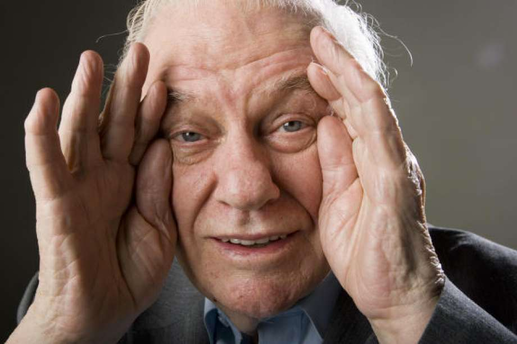

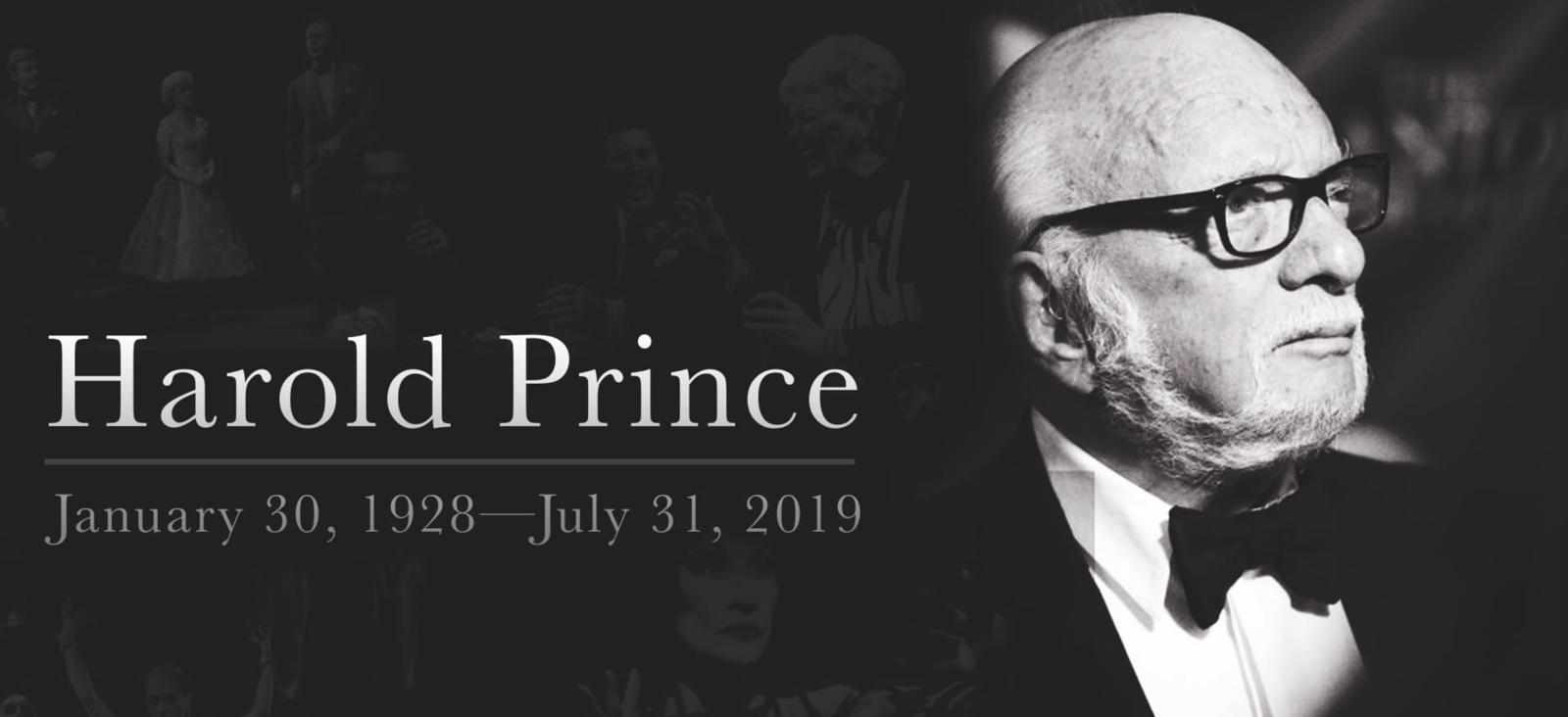
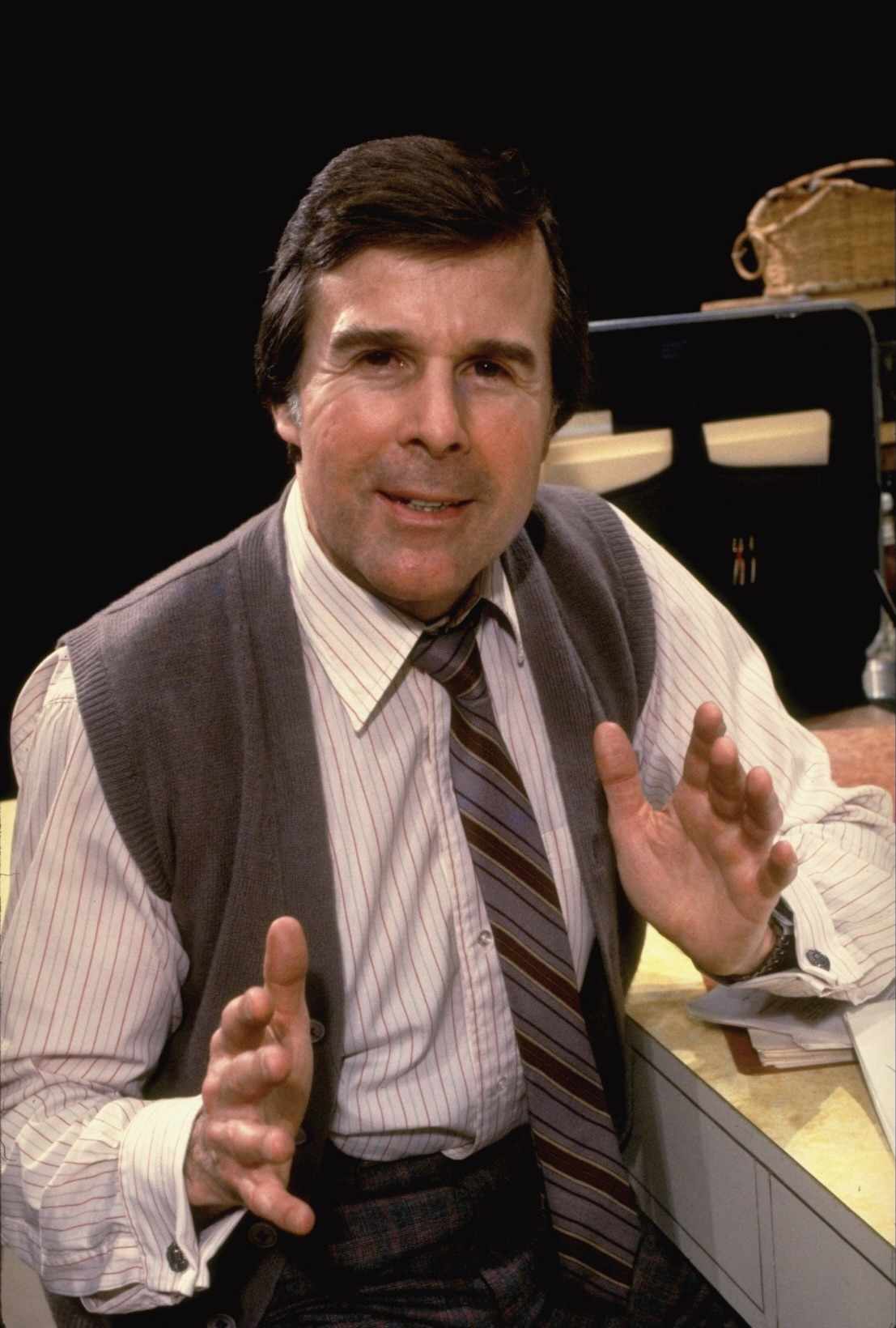















Write a comment ...